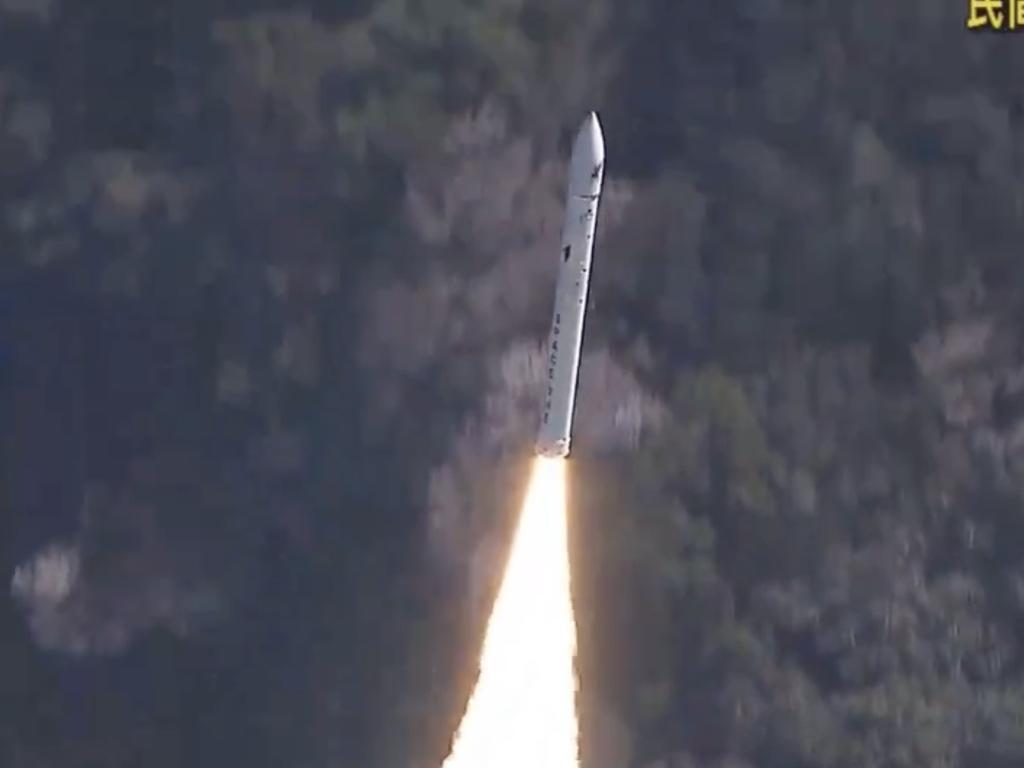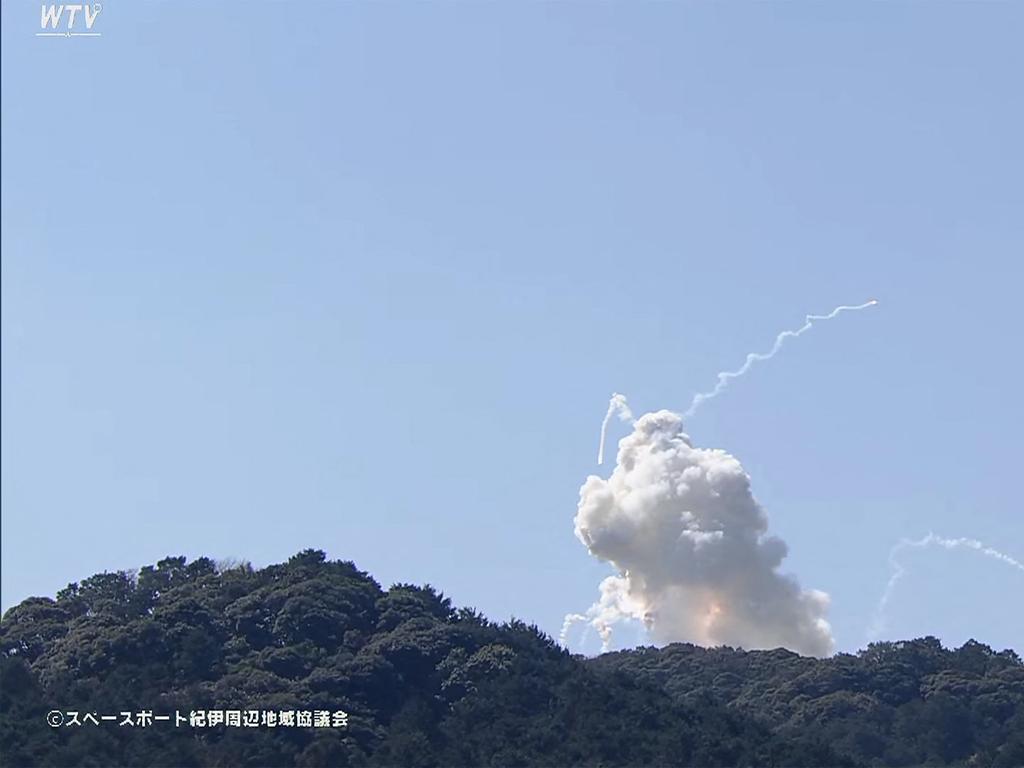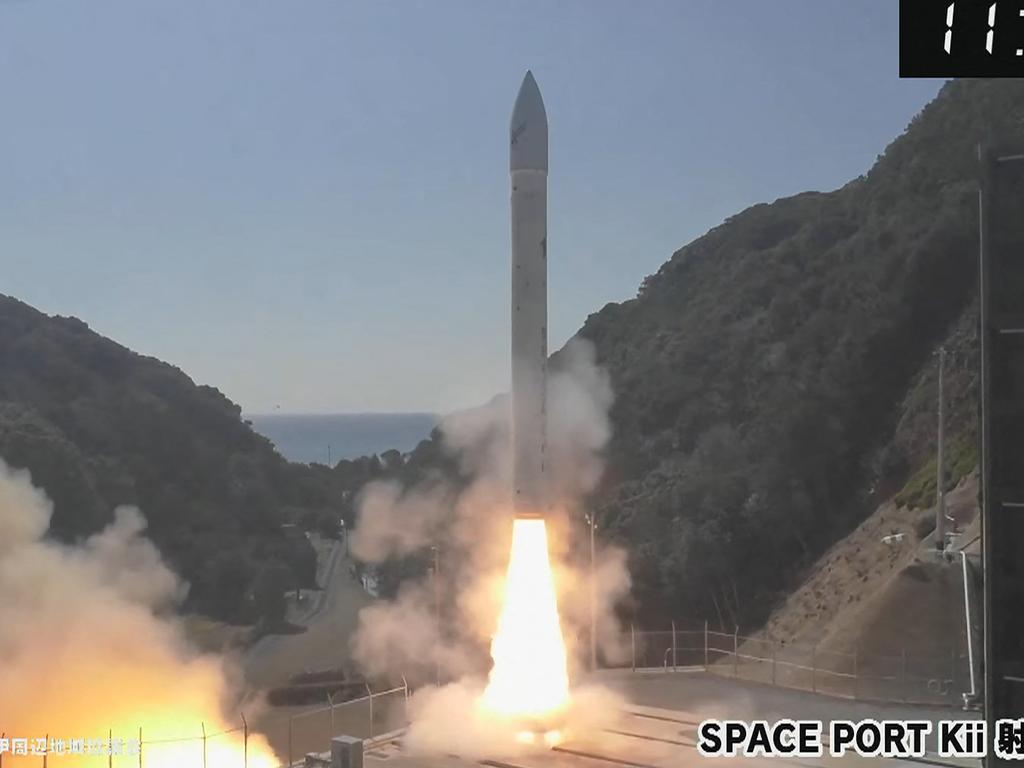Space One’s private rocket carrying satellite explodes seconds after launch
A spectacularly failure has cost a private company millions, here’s how it happened.
A rocket has exploded seconds after its $7 million launch in a spectacular failure for the start-up company who made it and planned to put a satellite into orbit.
Tokyo-based Space One’s 18-meter Kairos rocket blasted off from the company’s own launch pad in western Japan, carrying a small government test satellite.
But seconds later, the solid-fuel rocket erupted into balls of flame, sending smoke billowing into the remote mountainous area, live footage showed.
“The launch of the first Kairos rocket was executed, but we took a measure to abort the flight,” Space One said in a statement, adding that “details are being investigated”.


Burning debris fell onto the surrounding slopes as sprinklers began spraying water in dramatic scenes watched by hundreds of spectators gathering at public viewing areas.
Space One did not disclose the launch costs, but company executive Kozo Abe said it is “competitive enough” against American rival Rocket Lab.
Rocket Lab has launched over 40 small rockets from New Zealand since 2017, at around $7 million per flight.
The fiery failure marks a blow to Japan’s efforts to enter the potentially lucrative satellite-launch market. The government wants to assess if it can quickly launch using private firms small satellites when and if its existing satellites gathering intelligence, including on North Korea’s missile activities.
Success on Wednesday would have given insight into the feasibility of such programs.
The plan had been for Kairos to put the satellite into orbit around 51 minutes after takeoff.
The mayor of Kushimoto, the town of 15,000 residents in Wakayama where the failed launch took place, voiced his surprise and disappointment.
“I didn’t even imagine an outcome like this,” Katsumasa Tashima told reporters shortly after the explosion.
But the town “will continue to support Space One, and we want to continue to offer our help so that the first rocket will have a successful launch”, he said.

Space One was established in 2018 by a team of major Japanese tech businesses, including Canon Electronics, IHI Aerospace, construction firm Shimizu and the government-owned Development Bank of Japan.
Last July another Japanese rocket engine exploded during a test around 50 seconds after ignition.
The solid-fuel Epsilon S was an improved version of the Epsilon rocket that had failed to launch the previous October.
The malfunction came after Tokyo in March 2023 had seen its second attempt to launch its next-generation H3 rocket fail after liftoff.
Last month, Japan’s space agency toasted a successful blast-off for its new flagship rocket, the H3, after years of delays and two previous failed attempts.



